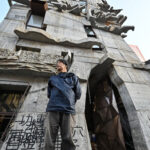Thailand’s Education Ministry has been given the power to set up a special panel to take over the administration of any problematic universities.
Under the order, which was issued by Prime Minister Prayuth Chan-ocha on Thursday, the ministry now has the remit to appoint a committee of five to 15 people to take temporary control over any universities found to be suffering from administrative or operational issues.
The panel will be able to look into the activities and decisions of a university’s governing council, and can even suspend a university’s student recruitment activities.
Prayut invokes S44 to reform universities https://t.co/zZbI1ZFMA3 #Section44 #University
— Thailand News (@AIT_News) July 14, 2016
The decision was made following a series of internal power struggles taking place at a number of public and private universities, particularly over the position of rector.
“In the past, the ministry did not have the power or legal authority to intervene in the power games of each university because each university had its own University Act that stems from the push for decentralization,” said Education Minister Dapong Ratanasuwan, as quoted by the Bangkok Post.
“But Section 44 now has given us the power, so from now on every problematic institute will have to adjust and improve,” he added.
Chaiyaphum Rajabhat University and Surin Rajabhat University will be the first two universities to be investigated by the special panel due to long-standing problems in choosing a rector, while Burapha University, Kasetsart University, Rajamangala University of Technology Tawan-ok and Bangkokthonburi University (BTU) are also on the panel’s list.
“Thailand cannot afford to get left behind” — Thai universities tumble down Asia rankings list after #lostdecade https://t.co/X7HuIw8Dyv
— Jerome Taylor (@JeromeTaylor) June 21, 2016
The ministry’s other concerns include a lack of quality in teaching and facilities provided at the universities; the offering of programs that have not been approved by the ministry; and enrolling too many students into a single program.
For example, the Teachers’ Council of Thailand claimed that in 2014, BTU had exceeded the permitted number of students it could recruit for its Master’s in Educational Administration program by admitting more than 2,500 students when it was only allowed to accept 500 students.
Prayuth invoked the order under Section 44 of the interim constitution, which allows the leader of the National Council for Peace and Order (NCPO) to introduce any reforms for the betterment of the nation and are deemed “lawful, constitutional, and final”.
Image via AP Images.
Liked this? Then you’ll love these…
Thai universities in ‘crisis’ as student enrollments decline
Could Thailand become SE Asia’s international education hub?







